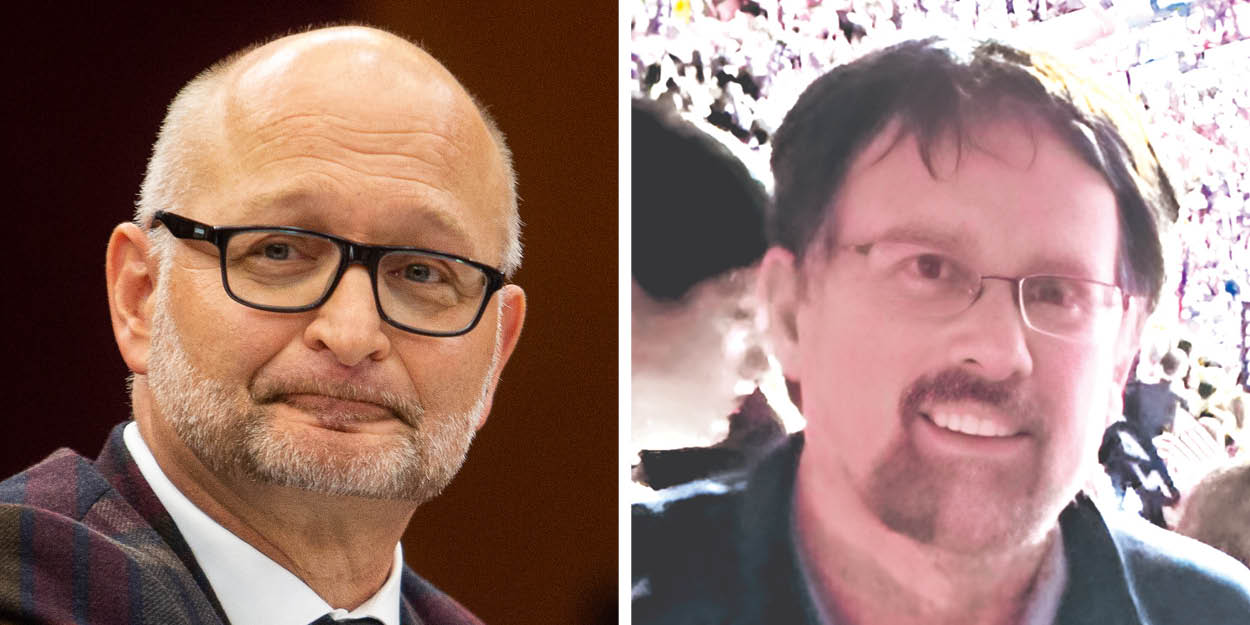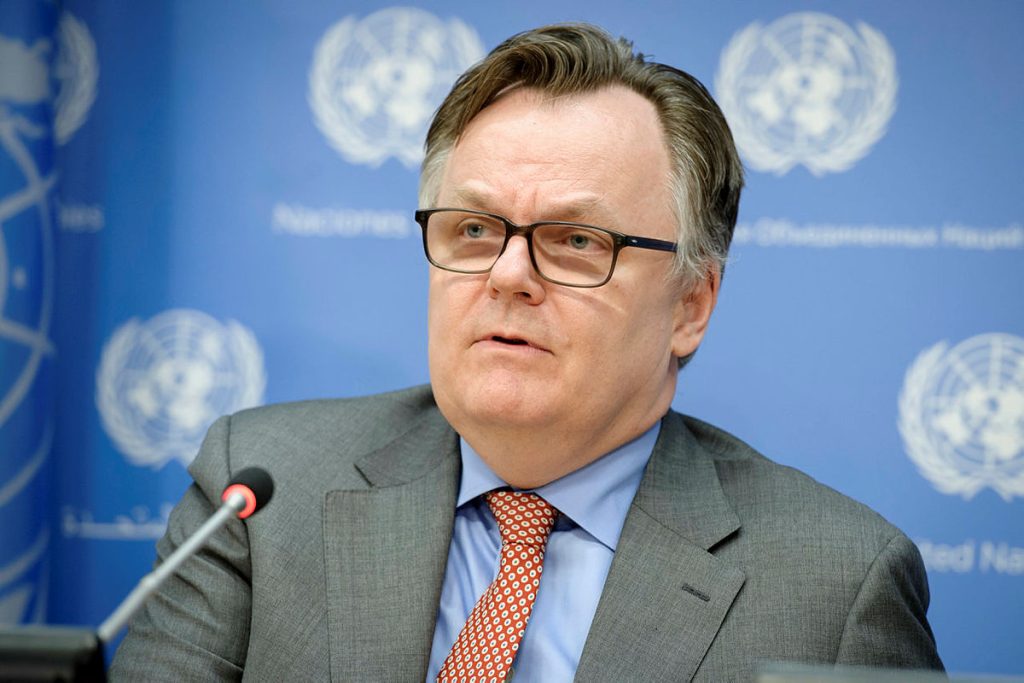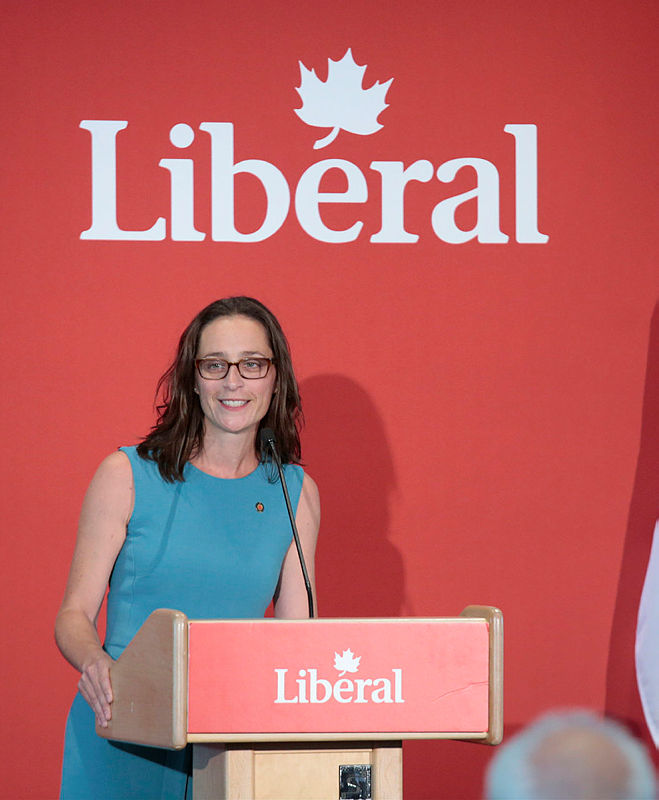With confidence votes coming, it’s important to keep political strategist Pitfield in the PMO, say some top Liberals

In this minority government and with the budget confidence vote approaching, Tom Pitfield has chosen to remain in the Prime Minister’s Office to steer political strategy, say some top Liberals.
Between July and mid-September, the Prime Minister’s Office found itself in the unusual position of having two principal secretaries at the same time. Prime Minister Mark Carney (Nepean, Ont.) had brought in former justice minister and attorney general David Lametti, assuming that veteran strategist Pitfield—who joined the PMO back in March—was only serving temporarily. Believing Pitfield would soon depart, Lametti even announced on social media on July 10 that he would officially take over as principal secretary effective July 14.
But the situation became awkward for everyone when Pitfield declined to offer a departure date, creating an unusually long overlap that stretched into mid-September. For Carney and his chief of staff Marc-André Blanchard, it was no simple matter to ease Pitfield out. A lifelong friend of former prime minister Justin Trudeau, Pitfield is also close to Carney. He has been a top strategist in four straight federal Liberal victories between 2015, and is married to Secretary of State for Children and Youth Anna Gainey (Notre-Dame-de-Grâce–Westmount, Que). Pitfield also previously owned Data Sciences, the firm behind the Liberal Party’s voter-outreach tool, Liberalist.
The son of the late Michael Pitfield, a former PCO clerk and Senator, Pitfield Jr. has been part of the well-connected Liberal political circles for years. His role is not without controversy—during the March leadership election race, Chrystia Freeland’s (University Rosedale, Ont.) campaign accused him of helping Carney while simultaneously working as a party contractor.

A senior government official told The Hill Times in late August that, as of July 14, the Prime Minister’s Office was in a transition period in which both Pitfield and Lametti were working as principal secretaries. The official, however, added that Pitfield informed the prime minister in late spring that he would not continue to serve in this position “long beyond the summer.” The source, however, did not spell out what “long beyond the summer” meant.
Liberal sources told The Hill Times on Sept. 16 that since Pitfield had no plans to leave his position or was unwilling to provide a definite exit date, Lametti would be leaving the PMO in frustration. The Hill Times contacted the same government official that day to confirm the departure, but the source denied knowledge of it. The Hill Times also reached out to Lametti, who did not respond. A day later, CBC reported that Lametti was leaving to take up the position of Canada’s ambassador to the United Nations, replacing Bob Rae. According to the order in council, Lametti will be earning between $319,600 and $375,000. Rae was earning between $260,600 and $306,500.
When asked by CBC’s The House why he was leaving the PMO when he only started his job in July, Lametti said: “Well, the possibility to go to the UN was always on the table. I’ve always said to the prime minister, I’ll serve you where you think I’m best able and most needed, and that’s always been the case,” he said on Sept. 20.
“So we had been talking about the UN as far back as June. We decided to work through the principal secretary role. But the world has changed. And the recognition, for example, of Palestinian statehood, [the] continuing conflict in Ukraine with Russia, and a prime minister who really has the chops, to be honest, for foreign relations, and really is interested in Canada’s role.”
Lametti and Carney have been friends since their university days at Oxford. The former justice minister, who until recently worked for a high-profile law firm in Montreal, was an important player in Carney’s Liberal leadership win and was a member of Trudeau’s cabinet from 2019 to 2023, when he was dropped from cabinet in a cabinet shuffle. He resigned his sear in 2024 to join Fasken Martineau DuMoulin.
It’s unclear why Carney hired Lametti when Pitfield didn’t want to leave. A senior Liberal, however, explained to The Hill Times that everyone at the PMO—including Carney—believed Pitfield was preparing to leave, so Lametti was brought in as his successor. It later turned out Pitfield had no intention of stepping down. The whole episode became easy fodder for ridicule in parliamentary circles. Even at the Sept. 24 high-powered Politics & the Pen event in Ottawa—one of the most popular annual events attended by hundreds of politicos—emcees Justice Minister Sean Fraser (Central Nova, N.S.) and Conservative MP Chris d’Entremont (Acadie-Annapolis, N.S.), poked fun about the confusion, quipping about the uncertainty over who was in and who was out—whether it was Lametti in or Pitfield out, or the other way around—and how senior Liberals were struggling to spin this situation.
In interviews with The Hill Times, Liberal Hill staffers said the obvious pull of influence in the PMO is so strong that few want to leave once they’re hired.
“Once you enter this office [PMO], the influence you enjoy, after that you don’t want to leave,” a senior Liberal told The Hill Times.
This source said the question of who would stay and who would leave was on everyone’s mind. But after the Sept. 3-4 cabinet retreat in Toronto, it became clear that Pitfield was staying—he was at the retreat, while Lametti was not. The source added that two other factors worked in Pitfield’s favour: chief of staff Blanchard and Lametti are both regarded as policy people, while Pitfield is seen as a political operative who has helped the Liberals under prime ministers Trudeau and Carney win four consecutive elections. That experience weighed heavily in the decision to keep Pitfield on, particularly during a minority government.
The Liberal government will face a major confidence vote after the Nov. 4 federal budget, and with its popularity currently dipping in the midst of an economic downturn, all eyes will be set on how it survives the test. Moreover, there will be a number of such tests in the coming months and throughout the life of this minority government. Last week, Parliamentary Budget Officer Jason Jacques said he expects the annual deficit to be $68.5-billion this year, up from $51.7-billion last year.
Currently, the Liberals have 169 seats, the Conservatives 144, Bloc Québécois 22, the NDP seven, and the Greens one seat. In the 343-member House, the government needs 172 votes. It remains to be seen which of the three opposition parties will back the government in the first confidence vote and those that follow.
The last election took place only five months ago, and while it’s highly unlikely the government will be defeated, speculation about the vote outcome continues.
A Liberal MP, in a not-for-attribution-based interview with The Hill Times, said that in the last Parliament, although the NDP supported the government on confidence votes for more than two years, it’s unclear if the NDP would do the same in the current political scenario. According to this MP’s calculation, if an election were held now, the NDP would likely win more seats, since left-of-centre voters who rallied behind the Liberals because of the threat of United States President Donald Trump no longer see Trump as a decisive factor.
Complicating matters further, the gap between Liberals and Conservatives is narrowing in the national public opinion polls amid an economic downturn, according to Nik Nanos’ poll released on Sept. 23, although Carney is still the preferred prime minister at 50.7 per cent. The upcoming budget is expected to show a significantly higher deficit than the last one, with major cuts to jobs and services anticipated. The MP also pointed out that the NDP, having failed to secure the recognized party status in the last election, has been deprived of millions of dollars in research funding and NDP MPs are not voting members of House committees.

Pundits are also warning that with worsening economic conditions, the opposition may be tempted to vote against the government. Some suggest the Liberals may not survive the budget vote if the situation continues to deteriorate in the months ahead.
“Maybe in hindsight, the government regrets not having brought in a quickie budget last June, rather than this situation, especially since last June, no opposition party, including the Conservatives, would have felt like bringing down the government,” said L’actualité columnist Chantal Hébert on CBC’s The National At Issue panel.
“But the more the weeks go on and the situation deteriorates, the more that temptation will be there. I’m not predicting an election on that basis, but still, it becomes more complicated. Then the other question the Liberals have to ask themselves is, ‘If it’s going to get worse, do we want to survive the budget?’”
Greg Lyle, president of Innovative Research, said that it is crucial for the PMO to have a senior strategist who can map out how to win the next election. That strategist, he added, must have regular face time with the prime minister to discuss political strategy and the electoral impact of different policies. Lyle credited Pitfiled with playing a critical role in the Liberal Party winning four consecutive election victories, adding that neither Lametti nor Blanchard had experience in either campaign mechanics or campaign communications. Of the three, Lyle said, only Pitfield understands this.
“The people who are there [in the PMO] day in, day out, are the people who influence the final decisions,” said Lyle. “You have to be there. Possession is nine-tenths of the law, and a big part of this is making sure that you have the face time with the prime minister, which you only have if you’re full time. It’s a lot harder to make a difference if you’re not there full time.”
Meanwhile, of the two most influential political staff appointments that Carney has made so far—PMO chief of staff and principal secretary—both have stirred controversy. Shortly after becoming prime minister, Carney appointed former MP and cabinet minister Marco Mendicino as his first chief of staff, but the caucus pushed back strongly against his choice. Caught off guard by the resistance, Carney assured caucus members he would make a change after the election. He replaced Mendicino with Blanchard, who is well liked within both the caucus and the PMO.
arana@hilltimes.com
The Hill Times






 LICENSING
LICENSING PODCAST
PODCAST ALERTS
ALERTS













